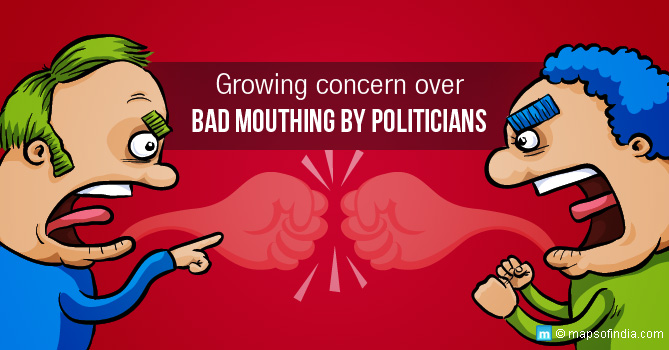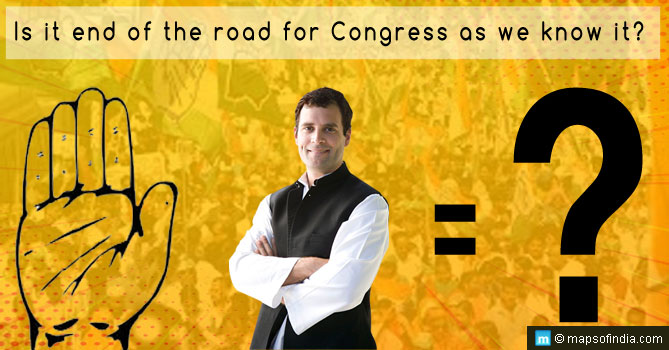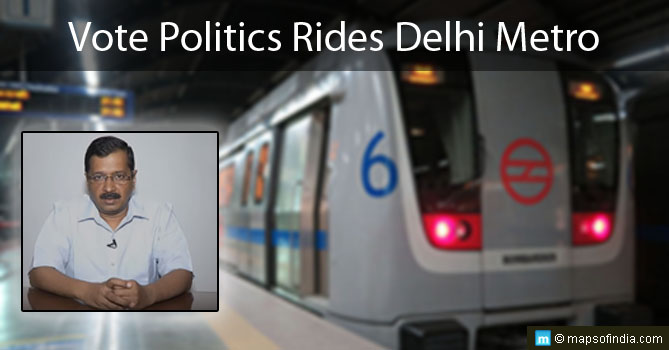Remember the Evelyn Beatrice Hall quote, “I disapprove of what you say, but I will defend to the death your right to say it”? To many, this would be the ideal definition of a democracy – where various political honchos and parties get their say and the people, the electorate, get to listen to all sides before making an informed decision. In many countries, a spectacular display of this ideal is help up. In the US, for example, prior to the presidential elections, the main candidates engage in a number of public debates. If you have ever seen one of these debates, the speeches of modern day Indian politicians may stand out in stark contrast. While these are about as different as chalk and cheese, for those who wish to know the one most important difference, here it is – Indian politicians are among the most abusive anywhere on the planet. Their speeches are overflowing with foul-mouthed personal attacks rather than any contentious issue that they may wish to resolve once elected to power. The use of wit, humor, and subtle sarcasm is non-existent and one may be thankful if expletives are trimmed in these speeches. One can only stop to wonder, “Where is Indian political system going?”
Dignity and Sophistication – Where Art Thou?
By the time India had gained independence, the earliest crop of political leaders emerged and taught the nation valuable lessons in grace and dignity. What did quite help was the fact that most of them were highly educated and those who did not gain any formal education gained their dignity by placing national interests above petty political ambitions. By no means do we expect the current generation of politicians to mimic a Rajendra Prasad or Gokhale or Tilak but the least expectations of refraining from mud throwing and hurling abuses seems too much to ask. While none of our children seem to be stuck to radios and transistors to listen to the Prime Minister’s speech, nor do any of us congregate in masses to hear our national leaders and their promises, but it is a fact that most of us do not wish to put ourselves or our families through the pains of foulmouthed political speeches.
Unparliamentary Parliament
The Indian parliament has come to be known for its violence, and for any lack of grace in conduct. Frequent disruptions and name calling are common but this is not surprising, perhaps, given that 186 members of parliament have criminal cases pending against them including charges of murder, rape, and communal disharmony. From being caught snoring during session to watching pornography in the house, Indian politicians have done it all, said it all. “Protests in the Indian Parliament are almost an every-day affair now. It is almost a dream to expect our political leaders to ever let a session go by smoothly with them giving each other time to speak and voice their opinions”, reported IBN Live last year, likening parliamentary proceedings to street brawls and fistfights. In 2012, Indian parliamentary proceedings from Uttar Pradesh’s state legislature were reported among the worst parliamentary brawls by UK’s magazine The Week. Contrast this with a joint condemnation issued by the Republican and Democrat party of the US when Republican House member, Joe Wilson shouted, “You lie” during the course of President Obama’s health care address to the US Congress. We, the people, have been left wondering if we are merely moving from the frying pan to the fire between political parties and leaders in India.
Personal Attacks in Politics
The personal ethics of a politician or a leader is always in question in the minds of the electorate when it comes to casting votes. In India, however, personal attacks have become the norm, irrespective of the political stand taken by any politician over issues faced by the country. In 2012, when incumbent PM and then a lead opposition member Narendra Modi launched a personal attack against central minister Shashi Tharoor by calling his wife, Sunanda Pushkar, a “50-crore girlfriend”, the media furor was at its peak. Tharoor himself responded, “My wife is priceless”. But three years hence, indiscretions and consequent personal attacks have become common and no one seems to raise an eyebrow any longer. In 2014, when the relationship between veteran Congress leader Digvijay Singh and his girlfriend Amrita Rao came to light much mud throwing and foul-mouthing followed. No one seemed interested in sending congratulatory messages, however, when the couple married in 2015. Abuses on caste, religious, and cultural lines seem to have become the norm now.
Bihar: Pulling Out All Stops
If you thought that Amit Shah’s phrase ‘chunaavi jumla’ that he coined prior to the Delhi elections was derogatory towards the voters who still believe in election promises, if you thought that Rahul Gandhi’s nomenclature of the Modi government as “suit boot ki sarkar” was outright offensive, think again. The Bihar assembly polls have pulled out all stops and the country’s politicians are at their worst. Thinly veiled abuses and outright mimicry have become the rules of the game. During the election campaign, veteran politician Laloo Prasad Yadav went on to mimic Modi’s style of address and this video recording went viral across the country. Chief Minister Nitish Kumar was called a ‘Luchcha’ by former Bihar Minister Shakuni Choudhary, PM Modi got branded ‘Jhootha’ and a ‘Kalia Naag’ while all semblance of courtesy started to fall away.
One may take a moment and wonder what form of law and order is the government expected to maintain when Rashtriya Lok Samata Party MP Arun Kumar climbs a podium and threatens to rip apart the CM’s chest. In a political environment where every leader seems to be in a race to outdo the other in abusing and bad mouthing the others, the common man is the ultimate loser. It is in times such as these that we start to miss the subtle, self-deprecatory humor of leaders such as AB Vajpaee and the ability of Narasimha Rao to speak eloquently in 16 languages. But then, perhaps, such leaders were misfits in India’s political system.






